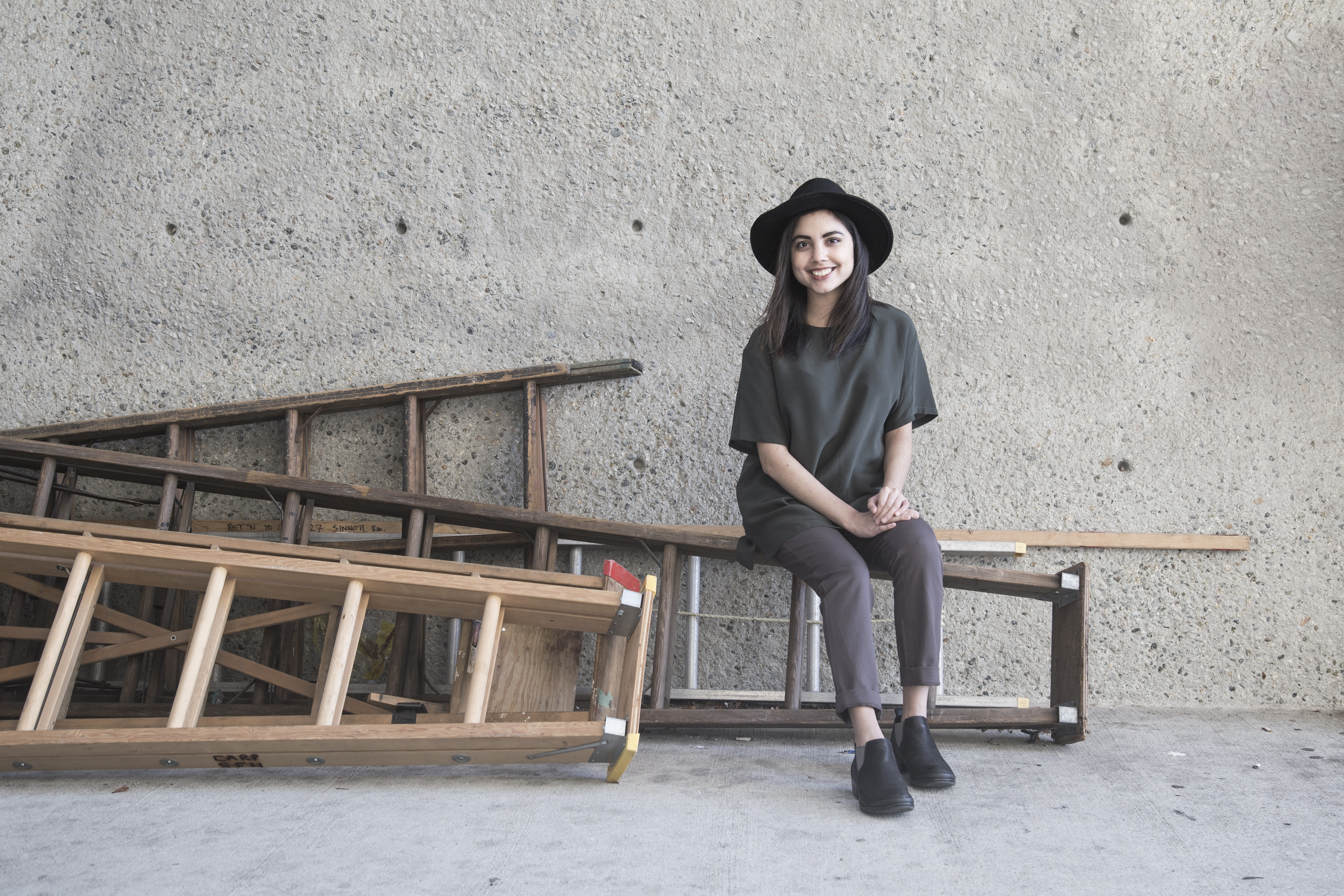After being diagnosed with a life-altering illness, few people think about what they’re going to wear. But as Zoya Jiwa points out, illness can have a profound effect on what you can and cannot wear.
Jiwa has been living with lupus, an autoimmune disease, since her teenage years. Her disease and medication left her with side effects such as nausea, weight fluctuations, fatigue, and hair loss. After a long period of remission, her lupus flared up again, and this time her diagnosis showed brain involvement.
Flash forward to Jiwa at 22: along with managing her chronic illnesses and the flare-ups that are often part of the package, the fifth-year sociology student has launched a number of social initiatives to support others who are navigating health challenges.
One of her top projects is a style blog, As We Are. The website is meant to help those living with health conditions find stylish clothes that work for their body type and needs, but it is also devoted to telling the stories of people dealing with health conditions — everything ranging from autoimmune disease to mental health challenges — and how they are coping with their respective conditions with positivity, creativity, and style.
Her community involvement has won Jiwa awards such as the 2015 SFU Terry Fox Gold Medal and Prize and the 2016 YWCA Young Woman of Distinction Award. She has also stepped upon the TEDx stage three times to share her story.
The Peak sat down with the warm, vibrant woman to get to know more about her and the inspiration that keeps her going.
“[. . .] I would rather treat my body as my friend and learn to be with my body instead of fighting against it.”
Jiwa had already been living with her initial diagnosis of lupus for a few years before she received news of her brain involvement. When asked how she reacted to this diagnosis, Jiwa spoke to feelings of uncertainty, isolation, and frustration despite an extensive support system for which she was grateful. “I didn’t know how to communicate what I was feeling to others,” she recalled. “I just didn’t know what the future would hold.”
For Jiwa, community involvement was always something that had brightened her day. Her previous projects included two personal blogs, as well as Simply You, an eight-session community program for youth ages 11–16 to foster confidence and leadership skills. After her second flare-up, however, she turned to a more personal and journalistic form of community involvement through her blog As We Are.
Jiwa’s condition renders her body incredibly sensitive to different fabrics, lights, and even sounds, forcing her to be creative and innovative in dressing to accommodate her symptoms. Comfort is key. She remembers the moment of conception of As We Are with a laugh: “One morning I woke up and I was looking in my closet and discovered I had more pyjama pants than real pants.”
Recalling the sense of confidence and expression that clothes used to bring her, Jiwa stumbled upon a gap in popular perceptions of style: “There wasn’t anything that stood out [in terms of fashion] for someone like me or my friends. So I saw this opportunity to create a community of celebration and to share stories of creativity and resilience and hopefully bring awareness to these different health challenges that people in our community are navigating.”
Through her platform, Jiwa finds herself often addressing what she believes is non-productive dialogue around health conditions. She spoke about how her experiences interviewing for As We Are led her to the realization that a lot of these health conditions are not visible, and so it’s very difficult to tell what anyone else is going through from the outside. Additionally, Jiwa struggles with the encouragement patients of illnesses often receive that “you’re going to win this” and “just keep fighting.
“That doesn’t really resonate with me as I deal with a chronic illness,” Jiwa said, “because it’s likely something I’ll be managing throughout my life. And I would rather treat my body as my friend and learn to be with my body instead of fighting against it.”
Jiwa addresses another cultural perception around health conditions with the very name of her organization, As We Are. She talked about the idea that sufferers of illnesses can do the things they want after they get better. “The intention behind the name was to create a space where people can celebrate who they are, in this moment, not just waiting to get better,” Jiwa explained.
The stories of resilience and passion Jiwa encounters in her interviews led her to envision creating a positive, celebratory community for sufferers of health conditions: “I try to bring together the community because there are so many moments where I’m interviewing someone and see so many opportunities for connections.” To that end, Jiwa also hosts community events a few times a year for the As We Are community to come together and form support networks and friendships.
The stories of As We Are not only help others in the community feel connected and supported, but they also help Jiwa build upon her writings talents, focus, and creativity in the face of the toll lupus has taken on her cognitive capacities.
When she’s not working towards graduation from SFU with a degree in sociology and two certificate programs (sustainable community development and entrepreneurship and innovation), Jiwa spends time learning the ukulele, watercolour painting, hanging out with friends, and eagerly anticipating the new season of Gilmore Girls.
For her, it all ties into her main message of treating your body like a friend and embracing your best self today: “I think it’s important for us to take care of ourselves and find activities that bring meaning to our lives today, as we are.”


[…] Her disease and medication left her with side effects such as nausea, … Flash forward to Jiwa… […]